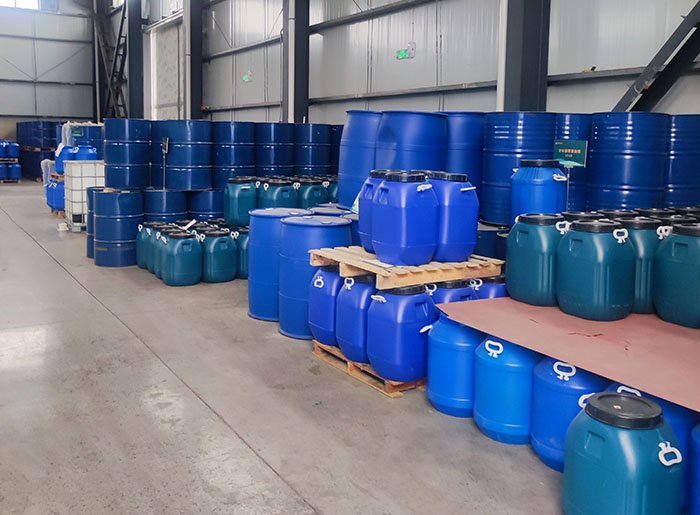In hot and rainy weather, special attention should be paid to temperature, humidity, sealing, and safety protection when storing asphalt anti stick isolation agents to avoid product failure or safety hazards. The following are key storage methods:
1. Storage environment requirements
Cool and ventilated: Store in a cool and dry indoor warehouse, away from direct sunlight (high temperatures may cause solvent evaporation or component decomposition).
The ideal storage temperature is ≤ 30 ℃. If it exceeds this temperature, ventilation should be strengthened or cooling equipment (such as air conditioning or fans) should be used.
Moisture proof: The warehouse floor should be elevated (such as pallets) to avoid direct contact with damp ground. During rainy seasons, dehumidifiers or desiccants (such as silicone) can be used to control humidity.
2. Packaging sealing
Original sealing: Unopened isolation agents maintain the original packaging seal, and barrel products ensure that the lid is tightened to prevent moisture or air from entering.
Post opening handling: Immediately seal the container after use, and if necessary, cover the barrel mouth with plastic film before sealing (to prevent skinning or moisture absorption). When packaging small doses, choose small containers with good sealing to reduce frequent lid opening.
3. Safety protection measures
Fire and explosion prevention: Isolation agents are mostly flammable (especially solvent based), and warehouses should be kept away from fire and heat sources, equipped with fire extinguishers (such as dry powder or carbon dioxide type). Smoking or electrical welding operations are prohibited in the warehouse.
Anti static: Metal storage tanks need to be grounded to prevent the accumulation of static electricity from causing fires.
4. Precautions for stacking and transportation
Stacking height: The stacking height of barrel products should not exceed 3 layers to prevent deformation or leakage under high temperature pressure.
Transportation protection: Cover with tarpaulin during transportation to avoid direct sunlight or rain.
Vehicles need to be ventilated to prevent the accumulation of solvent vapors in enclosed spaces.
5. Special weather response
Rainstorm warning: check the waterproof property of warehouse roof, doors and windows, and transfer to higher terrain areas if necessary. Set up drainage ditches around the warehouse to prevent water from flowing back.
Extreme high temperature: Close warehouse doors and windows during the day to reduce the entry of hot air, and ventilate and cool down at night.
6. Regular inspection and shelf life
Regular inspection: Check whether the packaging leaks and whether the barrel is swollen (high temperature may cause an increase in internal pressure).
First in, first out: Follow the product shelf life (usually 1-2 years) to avoid long-term storage that may cause performance degradation.
Through the above methods, the storage stability of asphalt anti sticking and isolation agents can be effectively guaranteed in high-temperature and rainy environments, avoiding waste and safety accidents. If the product has delamination, clumping, or odor, it should be immediately stopped and the supplier should be contacted for handling.


